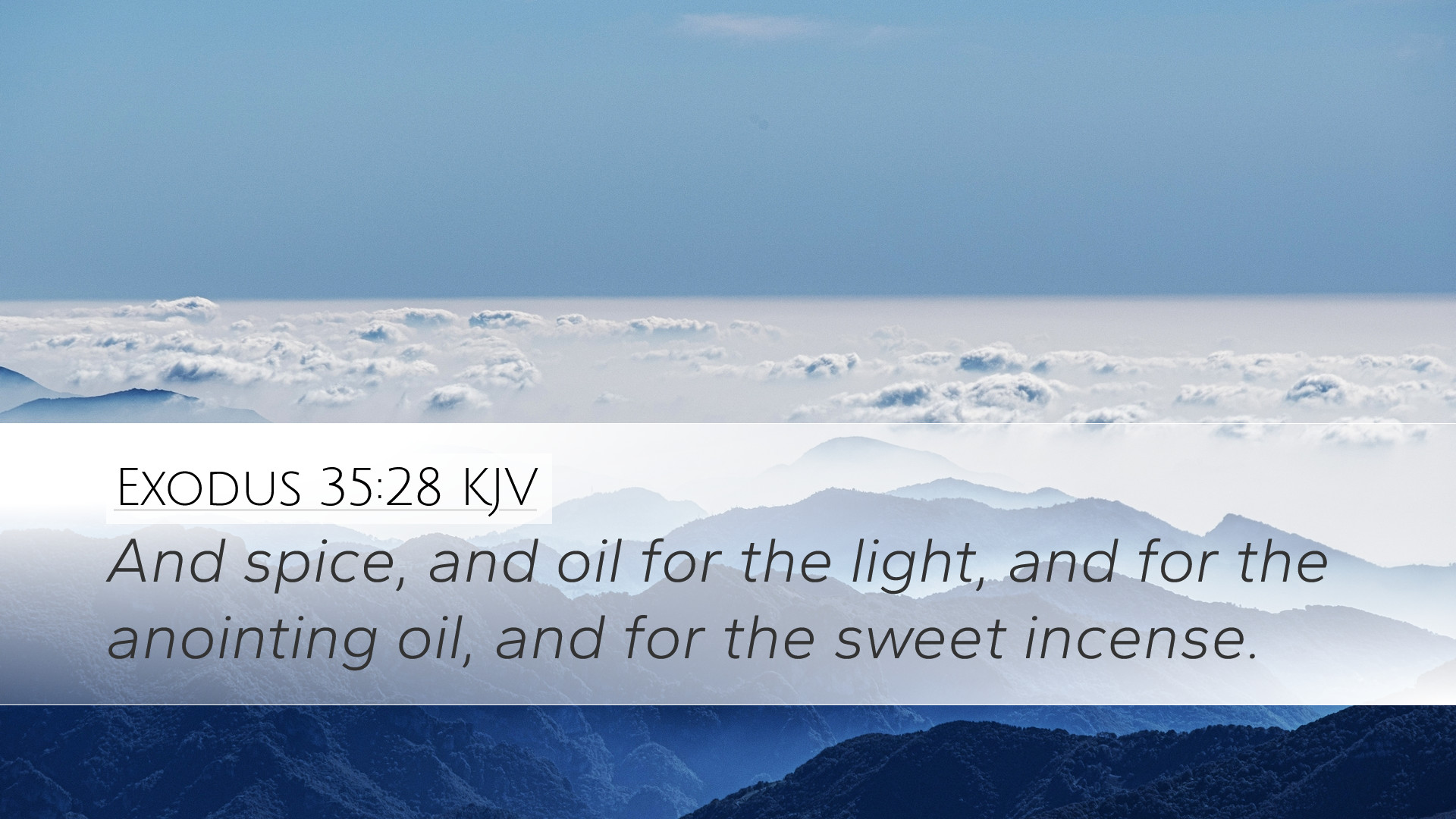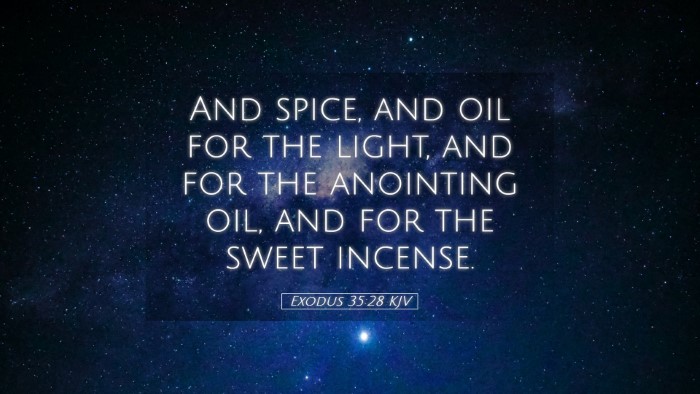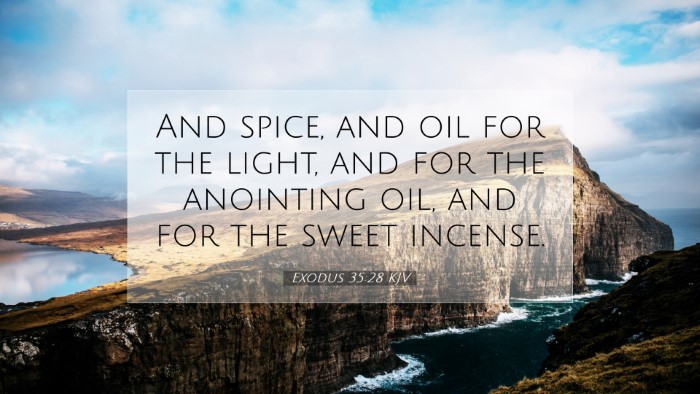Commentary on Exodus 35:28
Verse: "And the spices, and the oil for the light, and the anointing oil, and the sweet incense."
Introduction
This verse comes from a crucial section of Exodus where God is instructing Moses regarding the construction of the Tabernacle and the items necessary for its service. The contributions mentioned, particularly the spices and oil, play a significant role in the worship of the Israelites and symbolize deeper theological meanings.
Context and Significance
In Exodus chapters 35 through 40, we find a detailed account of the Israelites’ response to God’s command to build the Tabernacle, a place where God would dwell among His people. This passage emphasizes not only the materials required but also the willing hearts of the people who contributed to the work of the Lord.
Insights from Public Domain Commentaries
Matthew Henry’s Commentary
Matthew Henry highlights the willingness of the people to give for the service of the Tabernacle. He notes that the materials mentioned—spices for incense and oils—were not merely physical contributions but were representative of heartfelt devotion to God. He remarks on how such offerings are a reflection of the 'grace of willingness’ that should characterize the worship of God's people.
Spices as Symbolic Offerings
Henry points out that the spices used in the sacred anointing oil and incense were not only valuable but also fragrant, symbolizing the sweet aroma of devotion ascending to God. He emphasizes the importance of purity in worship; the right materials signify a heart aligned with God’s will.
Albert Barnes’ Notes on the Bible
Albert Barnes elaborates on the specifics of the oil and its purposes. He describes the anointing oil as significant for its role in consecrating the Priests and the holy items within the Tabernacle. According to Barnes, the oil represents the Holy Spirit, an essential element for the empowerment of leadership and service in the context of the community of faith.
Oil for the Light
Barnes explains that the oil provided for the light is crucial for illuminating the sanctuary. It symbolizes the enlightenment that God provides through His Spirit. The light in the Tabernacle signifies knowledge, guidance, and the presence of God among His people. He stresses that without this illumination, the worship atmosphere would be dark, illustrating the necessity of divine guidance in our lives.
Adam Clarke’s Commentary
Adam Clarke provides a broader understanding of the offerings, emphasizing that they indicate the obedience of the people in following divine directives. He mentions how the community’s contribution was a fulfillment of God's command and a demonstration of collective faith.
The Role of Community in Worship
Clarke argues that the process of gathering these materials reflects the community’s unity in purpose. This worship act indicates that God requires not only individual offerings but also communal contributions to fulfill His plans. Such unity is vital in the church today, as believers come together to contribute their gifts for the purpose of glorifying God.
Theological Implications
The materials mentioned in Exodus 35:28 can be seen as bearing theological weight that goes beyond the physical items for the Tabernacle. The oil and spices can be viewed through various lenses:
- Symbol of the Holy Spirit: The oil signifies the empowering presence of the Holy Spirit, necessary for effective ministry and worship.
- Communal Participation: The contributions illustrate the necessity for the body of Christ to work together in faith and obedience.
- Aroma of Worship: The incense represents the prayers and praises of God’s people, which are sweet to Him when offered with sincerity.
Concluding Thoughts
Exodus 35:28 serves as a vital reminder of the communal nature of worship, the significance of consecration through the Spirit, and the heartfelt devotion that should characterize all offerings made unto God. As believers today reflect upon their own contributions to the church and to God’s work, they should remember that each act of service—whether through offerings of time, talent, or treasure—should mirror the same willingness seen among the Israelites. The collective worship experience is profoundly impacted by the communal spirit, dedicated giving, and the recognition of God's holiness represented through the materials used in worship.


